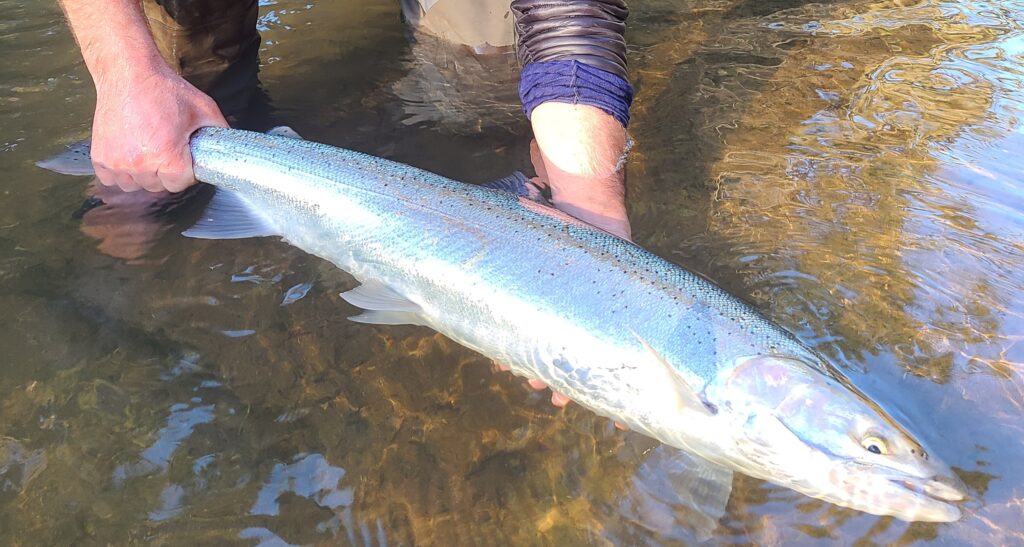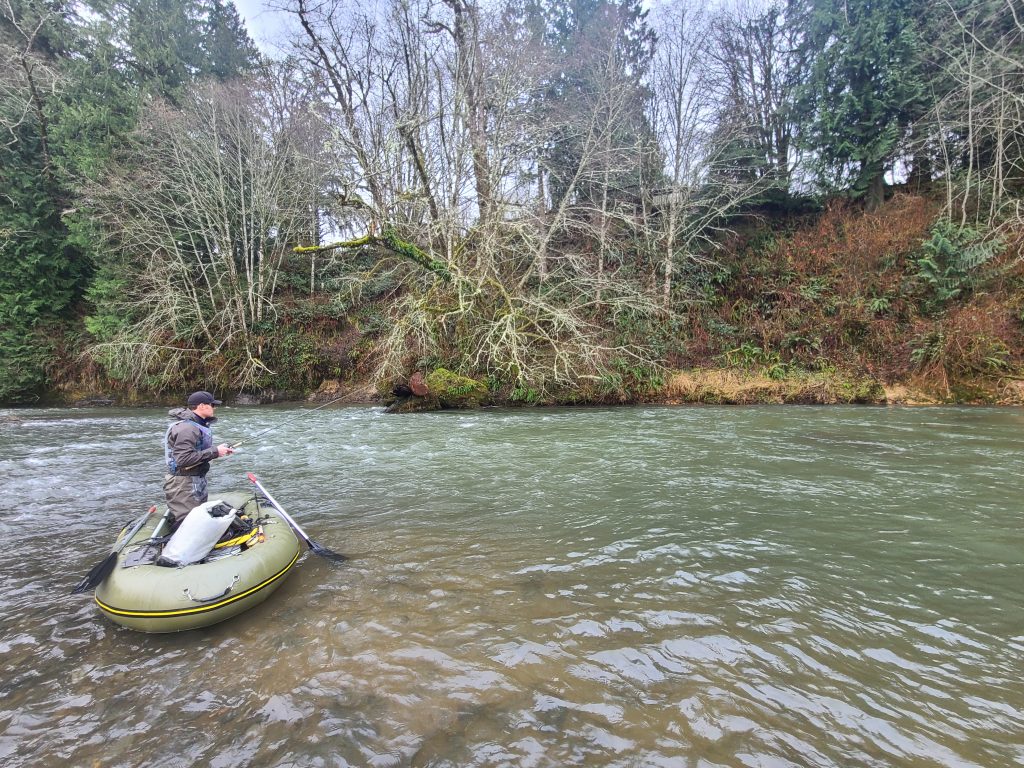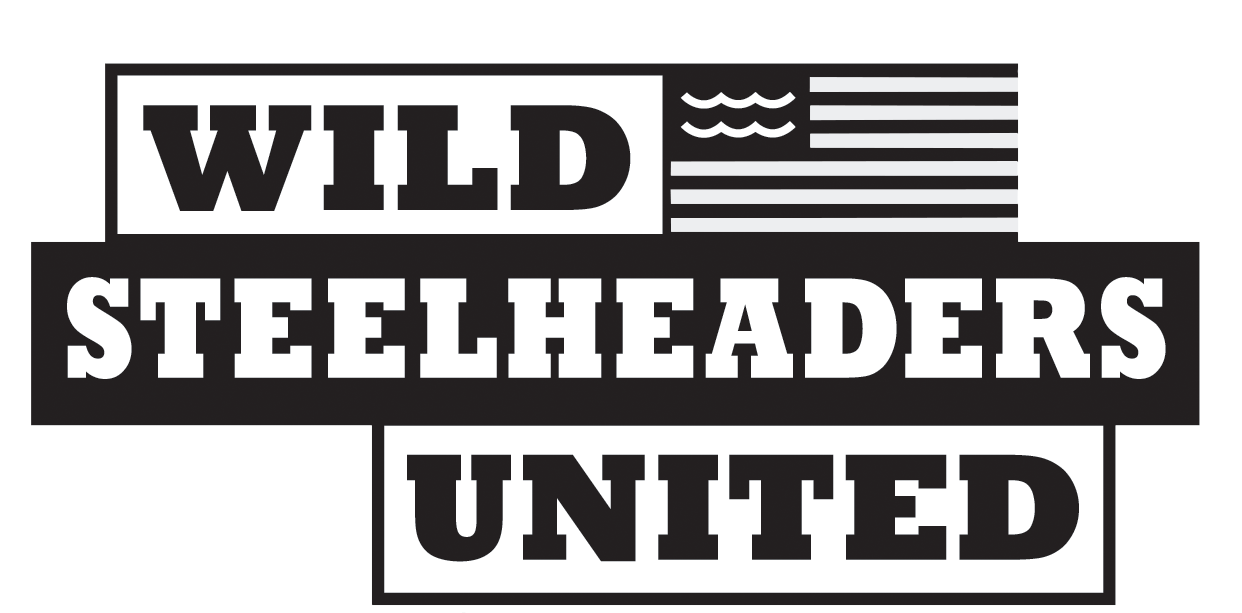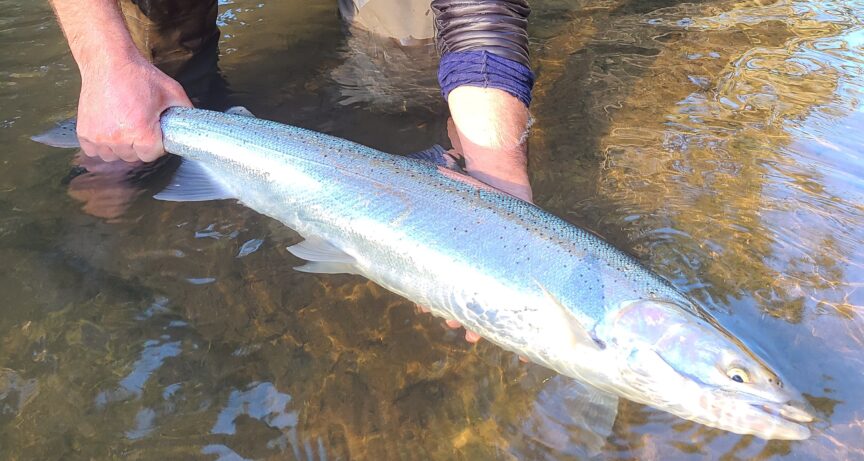
Image: Jonathan Stumpf/TU
On Wednesday, July 28, the Washington Department of Fish and Wildlife (WDFW) will host the first in a series of virtual town halls to share information and gather feedback from the public concerning the upcoming coastal winter steelhead season.
WDFW managers will provide preliminary estimates of the 2020-2021 steelhead returns and whether the impacts from last season’s coastwide emergency regulation changes, which included a bait ban and use of boats for transportation only, achieved the goal of reducing— angler encounter rates on declining populations of wild steelhead.
As we wrote about last winter here, here, and here, the emergency regulations were a “disappointment for the 2020-2021 season to be sure, but those who can think beyond the brim of their hats will know it’s the best call for the fisheries and communities that depend on them.”
The July 28 meeting will be the first in a series of four between now and late November, when Region 6 Fish Program managers will make public the agreed-to fishing plans for the coastal steelhead season. In the interim, the fish program staff will work closely with Tribal co-managers from the coast to exchange spawning survey data, finalize pre-season forecast agreements, and develop Steelhead Harvest Management Plans (SHMP), which are required to be signed by both parties by December 1, 2021.

Image: Jonathan Stumpf/TU
At Wild Steelheaders United (WSU), we are cautiously optimistic that the emergency regulations from last season did indeed reduce angler encounter rates. But whether they had enough of a positive effect to warrant a change in this season’s management is yet to be determined. Given that WDFW was forced to impose mid-season angling closures last year for Grays Harbor and Willapa Bay rivers, we encourage the agency to err on the side of caution—especially since pre-season forecasts are fraught with uncertainty and mostly result in unsustainably large harvest and encounter rates for that season.
WSU supported the conservation measures WDFW took last year and until we have four – five consecutive years of good steelhead returns in Washington coastal streams we recommend such measures be continued. We also hope this process reflects a long-view, collaborative effort and serious commitment from WDFW, Tribal co-managers, Olympic National Park, habitat restoration entities, anglers, guides, and coastal communities to restoring wild steelhead runs and preventing new ESA-listings.
You can make a difference for Washington’s wild steelhead by attending the Wednesday, 6 pm, July 28, virtual town hall hosted by WDFW (via Zoom here).
Review the agenda, documents, presentation, and relevant studies for the town hall here.
Read more about WDFW’s upcoming schedule for the coastal winter steelhead season here.


